Blood and Beauty: The Borgias
by Sarah Dunant
For those with even a passing knowledge of history, the name Borgia conjures a variety of images: corruption, adultery, bribery, debauchery, poisoning, simony... in short, the kind of juicy, gossipy details that give tabloids a vast audience and novels a place atop bestseller lists. For those new to these notorious characters, Showtime's popular series The Borgias has filled in some of the gaps with its colorful, salacious and over-the-top rendition of Rome's "original crime family." Television, however, isn't the only place this infamous family has been appearing. Still capturing the imagination after more than half a millennium, the Borgias have been the subject of numerous recent books, several including new scholarship to provide a more nuanced view of Pope Alexander VI (Rodrigo Borgia) and his powerful brood. Easily the most appealing and addictive of these reads is Sarah Dunant's Blood and Beauty, a meticulously researched and beautifully written novel that not only re-creates the late 15th-century Vatican in exquisite detail, but explores the psychological and spiritual landscape of its inhabitants with extraordinary depth and subtlety.
The story begins in the summer of 1492 (the same year "Columbus sailed the ocean blue" to discover the New World) with the death of Pope Innocent VIII. Cardinal Rodrigo Borgia, a Spanish "outsider" who has been plotting and biding his time for years, manages, through manipulation, bribery and threats, to get himself elected as the new pope. Dunant expertly re-creates the sweaty backroom deals and wrangling, offering immediate insight into the new pope's character: "Tradition calls for only a single word. 'Volo.' 'I want.' But instead this big man, fine-schooled in politics and subterfuge, leaps up from his seat, brandishing both his fists high in the air, a prize fighter with his greatest opponent at his feet. 'Yes! Yes. I am the Pope...' And he lets out a great guffaw of childish delight."
Fist pumping wasn't the only way Borgia bucked papal tradition. He'd maintained a long-term illicit relationship with Vanozza dei Cattanei, with whom he had four children--Juan, Cesare, Lucrezia and Jofré--and, upon being elected pope, promptly installed his offspring in the Vatican. Vanozza was given other accommodations, but not for propriety's sake; the 61-year-old pope moved in mistress #2, the exquisite Giulia Farnese (Dunant's description of Farnese's legendary net of golden hair is, alone, worth the price of the book), aged 18, with whom he later fathered yet another son. Borgia was unabashed in his adoration of his children, for whom he had great political aspirations. He made Juan the commander of the papal army, Cesare a cardinal (who, a fighter at heart, later became the first man to ever resign the position), and arranged a variety of strategic marriages for Lucrezia--all in an attempt to bring the warring city-states of Italy under papal control.
The basic outlines of the story alone are enough for a captivating tale, but Dunant's ability to seamlessly blend historical facts with their emotional and psychological underpinnings is what lifts Blood and Beauty to another level. For example, she offers a fascinating glimpse into the lives and psyches of the Borgia women, especially Lucrezia. Dunant's Lucrezia is complicated, intelligent, beautiful and controlled by the men who adore her, most notably her father and brother Cesare (who, virulently jealous and a bit too affectionate toward her, has no problem bumping off his sister's lovers). In a way, the Borgias were the ultimate hot-blooded dysfunctional family, and Dunant captures their passion and infighting as vividly as she does their relentless quest for power. She also incorporates much of the new scholarship on the Borgias; while portraying the bitter rivalry between Juan and Cesare with great depth, she excludes Cesare as the perpetrator of his brother's murder. There are details here that are largely missing from other accounts of the Borgias; most fascinating perhaps, the role that syphilis (a new and confounding scourge of the time) played in the lives of those afflicted with it, especially Cesare Borgia.
Finally, and perhaps most importantly, Dunant places the Borgias in context. While they may have set the gold standard for corruption and greed, they were very much of their time. Dunant is careful to illustrate how much of the Borgia infamy was the product of vicious and often completely fabricated gossip by their enemies. And while it is true that the Borgias gave their foes plenty of ammunition, their reputation was disproportionate to their reality. Dunant works all of this into her story with such grace it appears absolutely effortless. The result is an engrossing and wildly entertaining novel that has the added (and rare) benefit of being very smart. --Debra Ginsberg



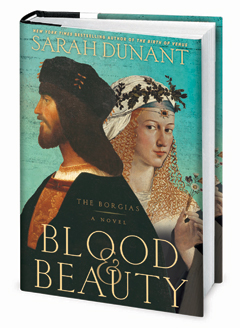
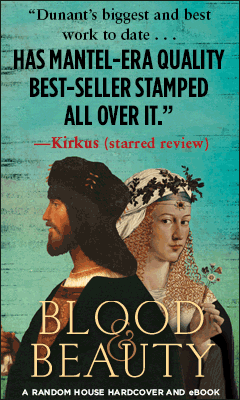
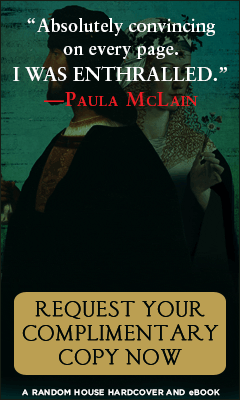
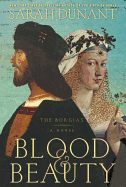

_Charlie_Hopkinson.jpeg)
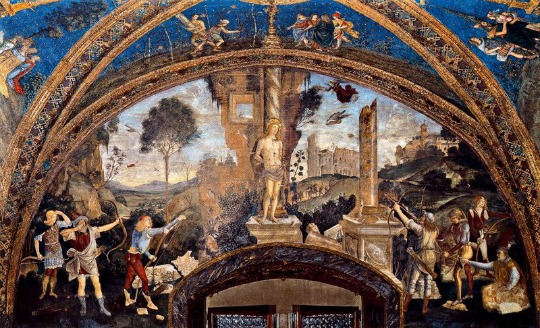 My process is decidedly pre-technological. I sit for months in libraries with notebooks and work my way through stacks of research books covering everything, from politics to herbs, literature to music, weapons of war to theology, education and medicine--anything from the period that I can lay my hands on. Gradually I fill up six or seven notebooks with facts, quotes, images, thoughts and ideas. Then as the story (for the story is always in there) starts to blossom, I can adorn it with all manner of truths and accuracies that you, the reader, don't notice, but I do. It gives me not just all the colors and shades of paint I need for the canvas I am painting, but also the confidence to apply them. Then when I can sit no longer at a desk, I go travelling. I visit the places to get a feel of them. In the case of Blood and Beauty, there is a huge amount left, albeit some of it ruined or changed by history: Cesare's campaigns can be followed, town to town, fortress to fortress, across Northeastern Italy and the Borgia apartments, and though they are now full of bad contemporary religious art (the Vatican is embarrassed by the family) they are pulsating with atmosphere.
My process is decidedly pre-technological. I sit for months in libraries with notebooks and work my way through stacks of research books covering everything, from politics to herbs, literature to music, weapons of war to theology, education and medicine--anything from the period that I can lay my hands on. Gradually I fill up six or seven notebooks with facts, quotes, images, thoughts and ideas. Then as the story (for the story is always in there) starts to blossom, I can adorn it with all manner of truths and accuracies that you, the reader, don't notice, but I do. It gives me not just all the colors and shades of paint I need for the canvas I am painting, but also the confidence to apply them. Then when I can sit no longer at a desk, I go travelling. I visit the places to get a feel of them. In the case of Blood and Beauty, there is a huge amount left, albeit some of it ruined or changed by history: Cesare's campaigns can be followed, town to town, fortress to fortress, across Northeastern Italy and the Borgia apartments, and though they are now full of bad contemporary religious art (the Vatican is embarrassed by the family) they are pulsating with atmosphere.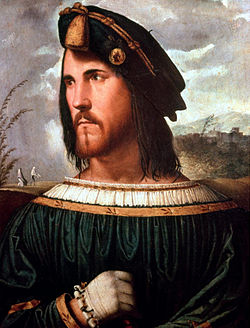
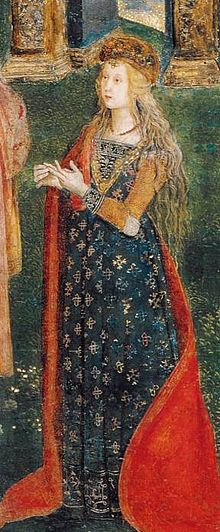
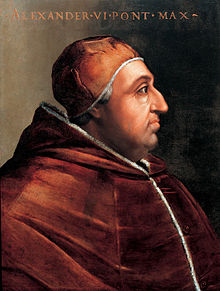 But the other thing that is amazingly modern is the subversive power of gossip and the media. There was no direct media at the time of the Borgias, but there was a network of diplomacy by which gossip flourished and flowed through the pens of ambassadors and chroniclers. So you can trace slander against the Borgias emerging from one conversation and then sliding like slime into the public domain. Think of all the celebrity gossip you have ever read. How the more shocking it is, the more you remember it. Think about the fact that later you may find out it wasn't true--just selling newspapers of fodder for celebrity TV channels--but that once said it cannot be unsaid. Well, the Borgias' history was like that. Mud sticks. I am not saying they weren't at times brutal and corrupt. They were. But then so were the times in which they lived. My job is to allow you to put them in context. To enjoy the drama, yes, but also see through the propaganda.
But the other thing that is amazingly modern is the subversive power of gossip and the media. There was no direct media at the time of the Borgias, but there was a network of diplomacy by which gossip flourished and flowed through the pens of ambassadors and chroniclers. So you can trace slander against the Borgias emerging from one conversation and then sliding like slime into the public domain. Think of all the celebrity gossip you have ever read. How the more shocking it is, the more you remember it. Think about the fact that later you may find out it wasn't true--just selling newspapers of fodder for celebrity TV channels--but that once said it cannot be unsaid. Well, the Borgias' history was like that. Mud sticks. I am not saying they weren't at times brutal and corrupt. They were. But then so were the times in which they lived. My job is to allow you to put them in context. To enjoy the drama, yes, but also see through the propaganda.